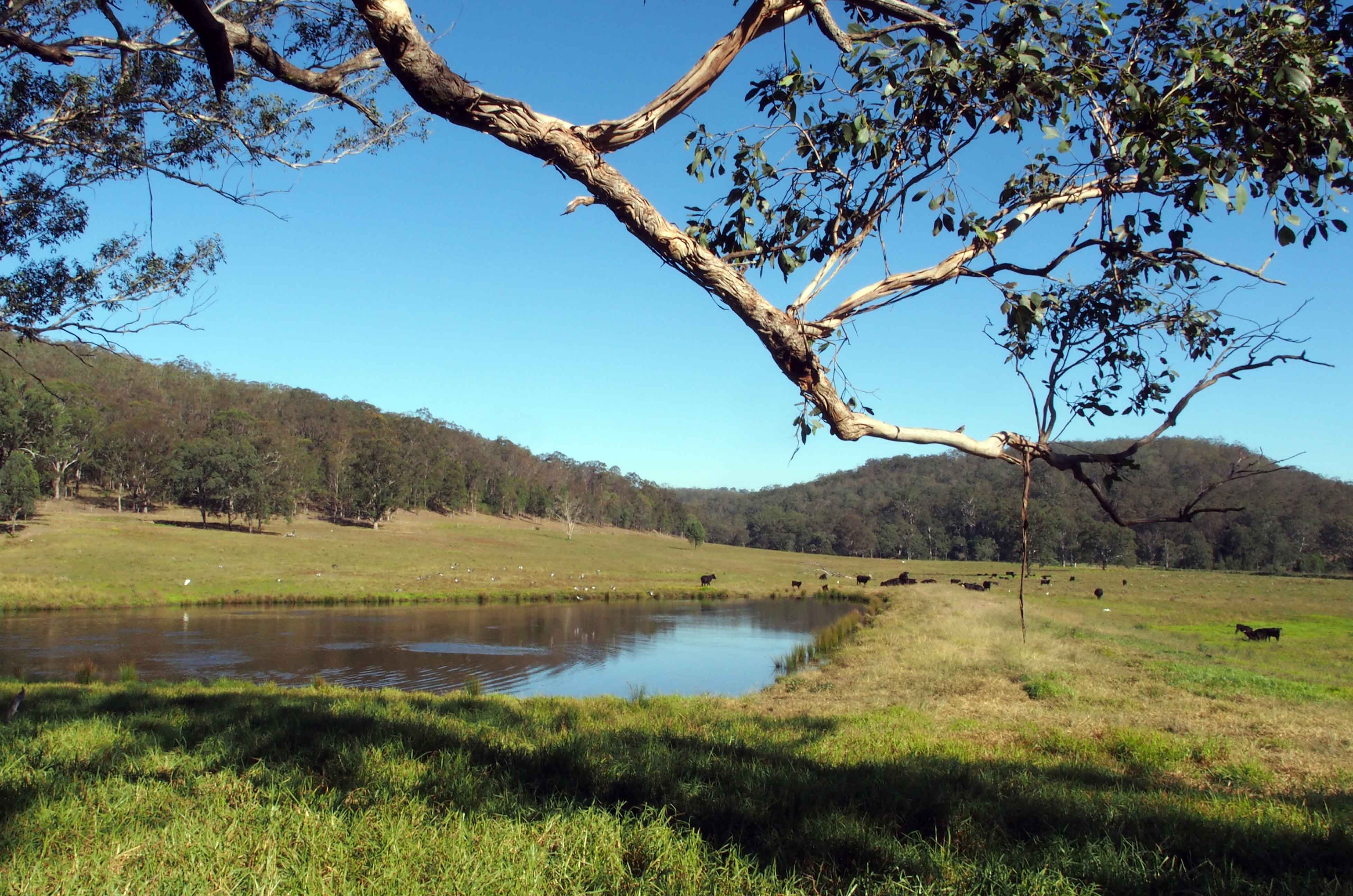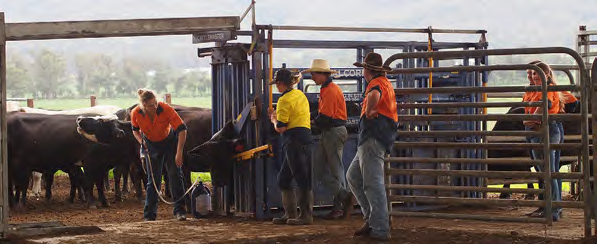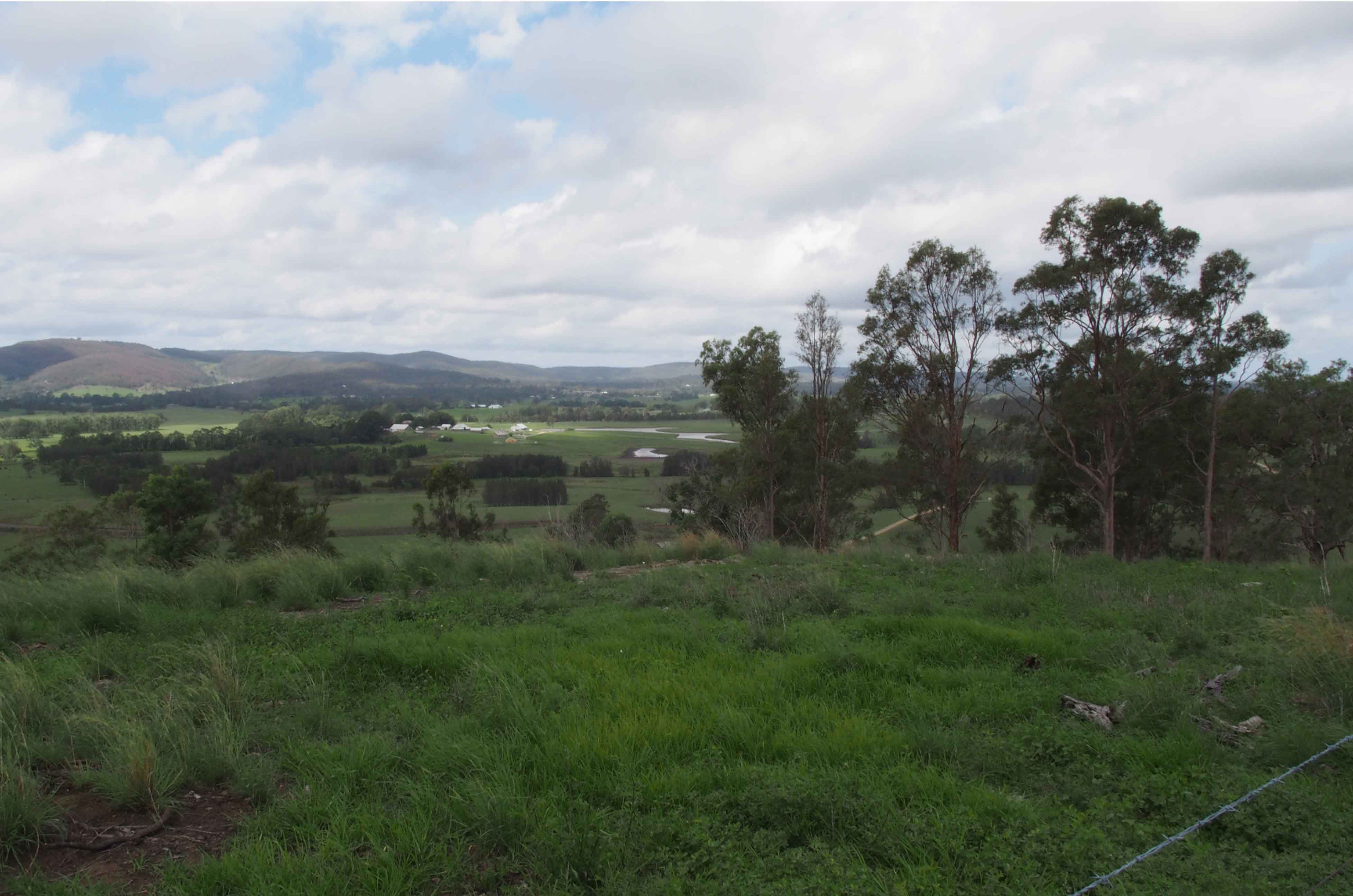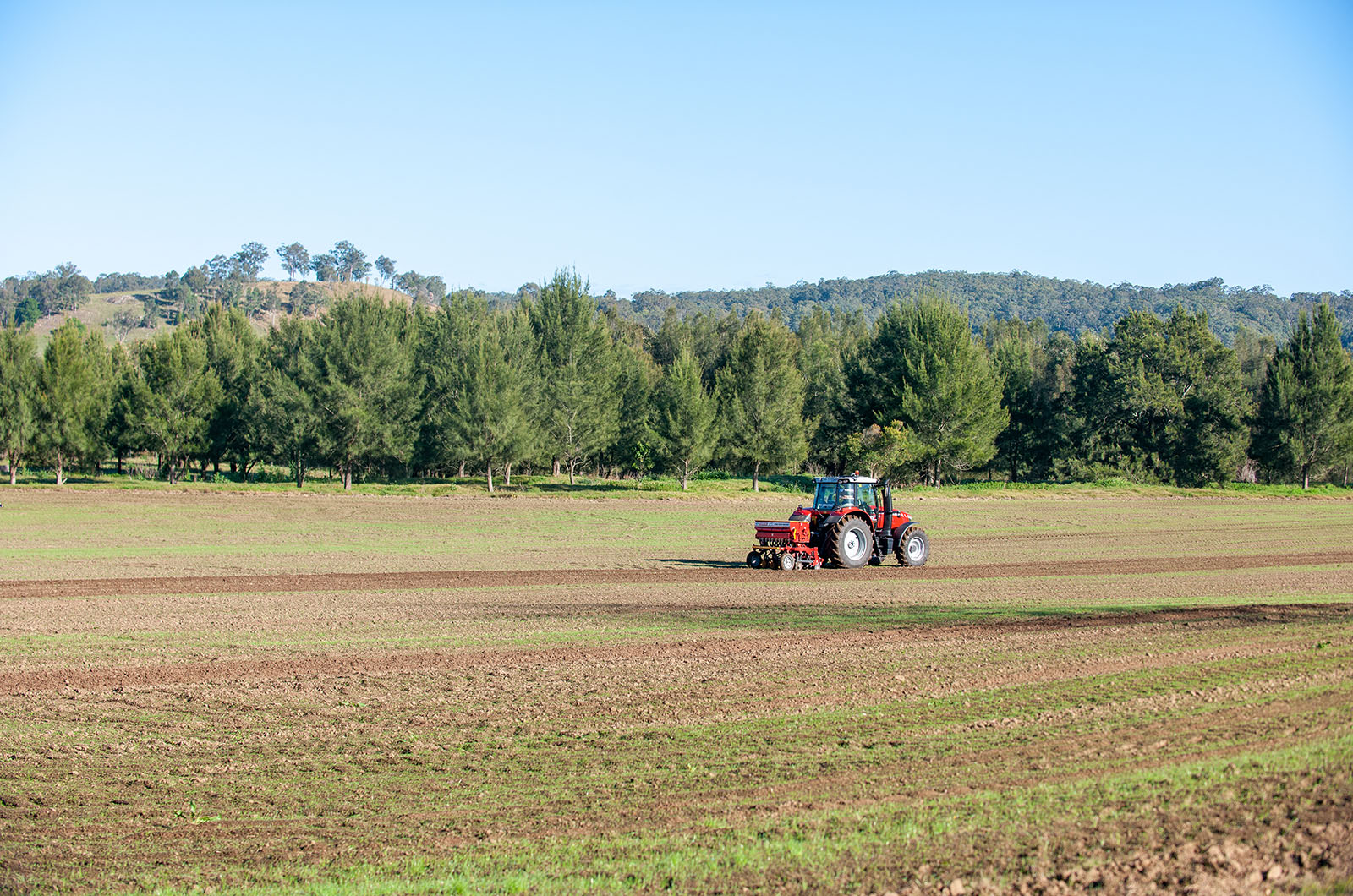
Natural resources
Tocal is a 2200-hectare farm located in the lower Hunter Valley of New South Wales, Australia. The property contains a range of natural ecosystems, from rainforest remnants and wetlands to dry sclerophyll forests. The main farm enterprises are beef cattle, dairying, horse breeding, and free-range egg production, with a small demonstration of sheep flock and some cropping.
The current management at Tocal aims to maintain a strong reputation by adopting best practice property management for livestock, ecological benefits, people, animals and the environment.
NSW Department of Primary Industries (DPI) and the CB Alexander Foundation manage the farms under the same environmental and market conditions as other local farmers. All management decisions for Tocal enterprises consider effects on the whole farm. Management decisions always work towards sustainable land use in a conscious and deliberate way.
There is a version of the Tocal Virtual Farm for primary school students. It can be found at https://arcg.is/01WriX. There are also activities available that are written for the NSW Geography, History and the Science and Technology syllabuses.
Tocal is located in the lower Paterson Valley of the New South Wales Hunter Valley. The Hunter River is the state’s largest single coastal river system, covering an area of 22,000 square kilometres. The Hunter River system passes through the Great Dividing Range in one of the few east-west breaks in the range. This break marks the geological border in the Great Dividing Range between the Carboniferous mountains to the north and the Sydney sandstone basin of the Permian era to the south.
The Paterson River is one of several tributaries to the Hunter River. Each of these rivers flows from the Barrington Tops (on the southern end of the Carboniferous mountains) into the Hunter River. The valley floor contains relatively recent (around 6,000 years old) alluvium from the Quaternary era.
Tocal is mostly contained in the Webbers Creek sub catchment, Webbers Creek being a tributary of the Paterson River. Tocal almost spans the Webbers Creek catchment and interestingly contains the northern tip of the Sydney sandstone basin in View and Bush paddocks, the Carboniferous mountains on the northern side of the Webbers Creek valley and the Quaternary alluvium of the valley floor (the Top Flat soil profile is an example of the older Quaternary alluvium, while Windmill paddock is an example of the newer lighter alluvium). This mixed geology creates a range of soils on Tocal.
The rim of the Webbers Creek valley rises about 300m above sea level (the peaks of Tocal are around 200m). This rise is the first encountered by maritime air masses moving west from the coast, often creating violent thunderstorms within the Webbers Creek catchment. The Webbers Creek catchment has a noticeably higher rainfall than the areas to the north, south and west. This, combined with the long narrow Paterson catchment and the tidal nature of the Paterson River below Tocal, means that Tocal experiences regular flooding in areas below 10 metres.

Tocal is part of the tradition lands of the Wonnarua people. European style agriculture came to the property with the first land grant in 1822 – to James Philips Webber. More detail about the cultural history of the property is available here.
People are an invaluable resource on any farm and probably even more so on Tocal. We have an important role in agricultural education, in our local community, as NSW government facility and as a producer of high-quality beef, eggs, milk and horse breeder.
People, products, services, and ideas flow into and out of Tocal and are influenced by the site and the industry in which we operate.
Nine staff members work full time on the farms. They are supported by up to ten casual staff and teaching staff. They are responsible for students who are rostered on for practical work during term.
These are made up of:
The central role of Tocal farm enterprises is to provide the foundation for full time student training, education delivery short courses, industry training and farm visits from schools and the general community and to support DPI research initiatives.
Each week of the student year between 25 and 35 students are rostered onto the various farm enterprises. The students from Cert III and IV Agriculture and Cert III Horse husbandry courses complete a range of practical and skills that support the theory training associated with the course providing a balance between theory and practical skills development.
The following tables summarises the roster hours for 19 practical and skills weeks on the farm enterprises for Tocal students in 2018.
Individual Student Practical Work rostered for each enterprise | Hours/Student |
Beef/horse/sheep rostered 5 times at 17 hrs per roster | 85 |
Dairy/Milking 2 weeks | 70 |
Numeralla | 35 |
Farm duties | 35 |
Dairy 1 weekend | 14 |
Dairy Holiday Work x 4 days | 28 |
Total rostered hours per student | 267 hrs |
The Tocal site includes offices of the NSW Department of Primary Industries, Local Land Services and Tocal College. Staff and students from these areas amount to around 100 people.
The government also plays a significant role in Tocal’s production and farm decision making.
State government plays a role mainly in compliance matters particularly in relation to:
The federal government influences management of Tocal indirectly including the impact on the economy and exchange rate of government decisions and international agreements and by lobbying for the removal of protectionism. Their direct influence is through compliance issues. The Australian Competition and Consumer Commission also has the power to influence dairy industry profitability but has not yet exercised this power.
Industry trends, innovation and the social licence of farms to operate are also factors that are people based and can have significant impacts on the management and productivity of Tocal.

Revenues from the farms for 2019-20 Financial year were:
| Dairy | $1,551,655 |
| Free Range Eggs | $843,213 |
| Beef | $658,275 |
| Horses | $88,600 |
| Sheep | $34,906 |
The total farm revenue is a creditable $3,176,649. This income pays for all variable costs of production and some improvements. It also contributes significantly to, but does not cover, all site overheads for the Tocal College farms.

Natural resources

Property management

Tocal farms
Want to find out about news, events, courses and publications?